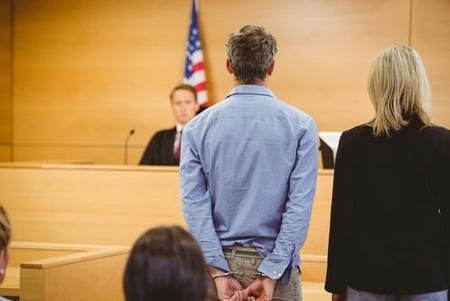Essential Stages of an Illinois Criminal Trial
 When considering what to expect in a criminal trial, the average person likely thinks of the court proceedings they have seen in movies or television shows. While that may provide the most basic understanding of a trial, there are many smaller pieces that often get left out. This blog will briefly go over each step of the trial process that a criminal defendant can expect. It is important to note that there are many ways a trial may veer from this path, but if you are facing a criminal trial, it is highly recommended that you find a criminal defense attorney who can help prepare you for the following stages.
When considering what to expect in a criminal trial, the average person likely thinks of the court proceedings they have seen in movies or television shows. While that may provide the most basic understanding of a trial, there are many smaller pieces that often get left out. This blog will briefly go over each step of the trial process that a criminal defendant can expect. It is important to note that there are many ways a trial may veer from this path, but if you are facing a criminal trial, it is highly recommended that you find a criminal defense attorney who can help prepare you for the following stages.
Jury Selection
In the United States, criminal defendants have the right to be tried by an impartial jury. The court and attorneys have the responsibility to appropriately and thoroughly examine the jurors prior to trial. The examination is meant to remove any jurors who demonstrate any bias, opinion, or prejudice that could impact their decision-making ability in regard to the crime at hand.
Opening Statements
Once the jury has been selected, the trial can begin, starting with opening statements. The prosecution has the burden of proof and will give their statement first. It is critical for the prosecution to refrain from using any derogatory language when describing the defendant. Once finished, the defense will then have their turn. Both parties will take the opportunity to detail the case, their perspective, and an outline of what they hope to prove.
Presentation of Evidence and Cross-Examination
Presentation of evidence in a criminal trial is considered “case-in-chief”. This stage allows each side of the trial to provide the jury with essential evidence as well as witness testimony. Each witness who testifies must be sworn to tell the truth.
The prosecution’s witnesses will testify first. The purpose of any presented evidence should be to persuade the jury of the defendant’s guilt, beyond a reasonable doubt. The defense may also provide their own witnesses, though they are not required to. Once the prosecution has finished directly examining their witnesses, the defense is allowed to cross-examine them. The contrasting examinations are meant to extract further evidence or call into question previously admitted evidence or testimony.
Closing Arguments and Jury Deliberation
The prosecuting attorney will provide their closing argument first, followed by the defense’s closing arguments. With their final chance to address the jury, both attorneys will likely take the opportunity to revisit and analyze the evidence in an effort to support their interpretation of the case.
Following closing arguments, the judge will provide the jury with instructions that entail the legal standards required to determine the defendant’s innocence or guilt. As a group, the jury will then deliberate. This process can last anywhere from a few hours to several weeks.
Once the verdict has been reached, a jury foreman will be elected to speak for the group. The foreman will provide the deputy sheriff with the group’s decision. At that time, the verdict will be read aloud to the court.
Contact Our Joliet Criminal Defense Attorney
If you have been charged with a crime and are headed to criminal court, an experienced criminal defense attorney can help you understand the case proceedings and the efforts it will take to fight the prosecution successfully. The defense team at McNamara Phelan McSteen, LLC is equipped to defend you against allegations of a wide range of crimes. Contact our Will County criminal defense attorneys to schedule a free consultation by calling 815-727-0100.
Source:
https://ilga.gov/legislation/ilcs/ilcs3.asp?ChapterID=54&ActID=1966
 815-727-0100
815-727-0100













